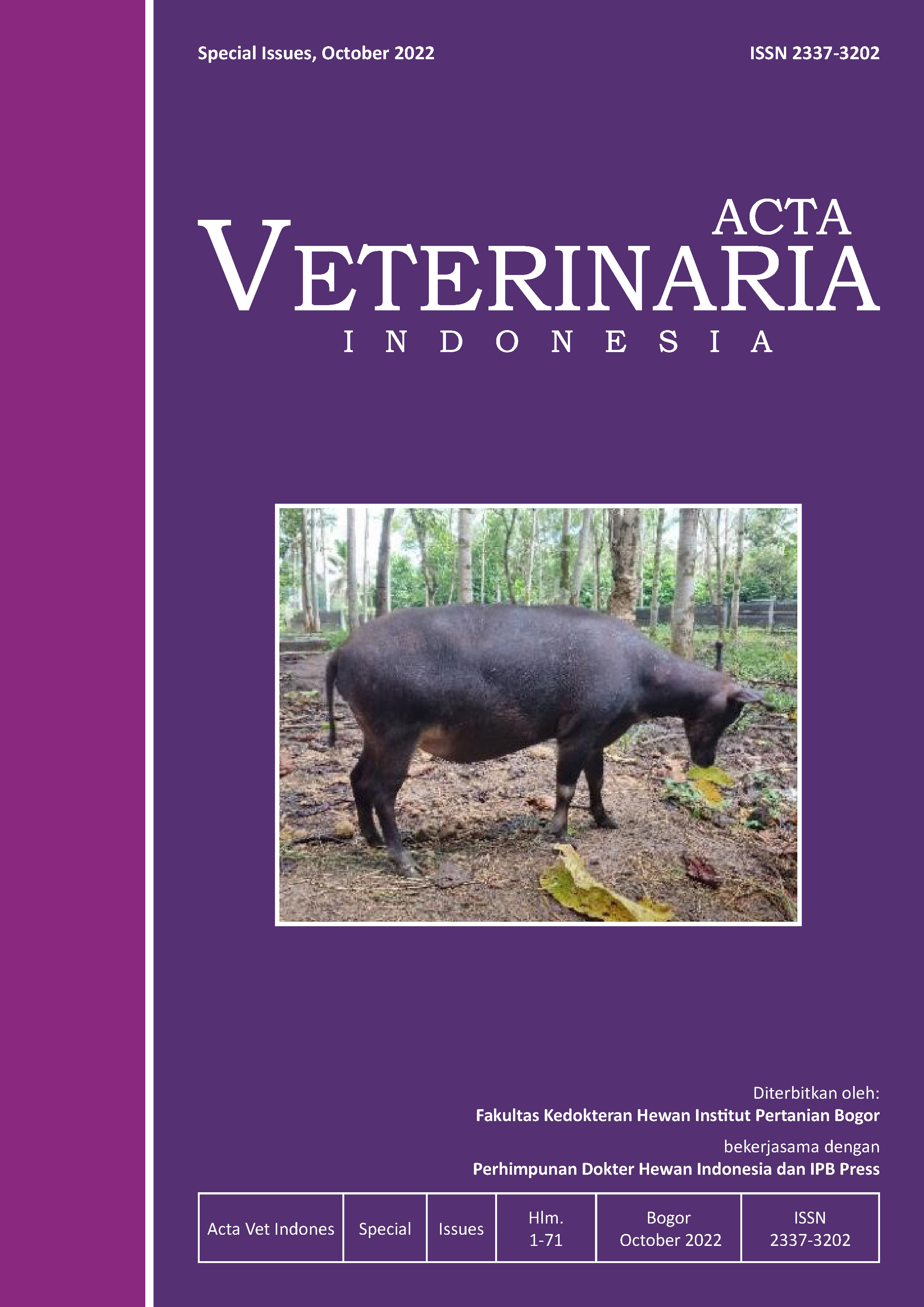Penanganan GSD (German Sheperd) yang Terinfeksi CPV (Canine Parvovirus) dan Parasit Darah Babesia sp. serta Anaplasma Sp. di Antasari Pet Clinic Samarinda
Abstract
Canine parvovirus (CPV) is a highly contagious viral disease of dogs that commonly causes acute gastrointestinal illness in puppies.. This disease is highly contagious and is the highest cause of death, especially affecting puppies aged 2-6 months. Babesia and Anaplasma are parasitic diseases caused by gram-negative intracellular microorganisms due to protozoan infections transmitted through tick vectors. A dog of german sheperd breed with a limp condition, anorexia, as well as bloody diarrhea. Clinical examination showed that there was an ectoparasite infestation of about 30%, and the oral mucosa was pale. The CPV Antigent rapid test showed a line of two which means it is positively infected with parvo virus. And from the results of a complete blood examination, it shows that there is a decrease in WBC indicating the presence of viral infections, and there is a rise in the SGOT values that indicates the presence of heavy work on the liver. And from the results of the blood review, it was found that the blood parasite was babesia sp. and anaplasma sp. The therapy given is in the form of lactic ringer fluid therapy, doxycycline 20mg / kg BB as an antiparasitic. Antibiotics use Gentamicin injection of 5 mg / kg BB or 0.005 ml / kg BB, administration of vitamin k3 (hemostop k) injection of 0.1 ml / kg BB as anti-rest, hematophos 0.1 ml / kg BB to overcome anemia. On the first day of therapy, the dog already shows progress, in the form of appetite that has returned, and by the third day there is no diarrhea anymore and feces are normal.organs.
Downloads
Copyright (c) 2022 Acta VETERINARIA Indonesiana

This work is licensed under a Creative Commons Attribution-ShareAlike 4.0 International License.
This journal provides immediate open access to its content on the principle that making research freely available to the public supports a greater global exchange of knowledge.
All articles published Open Access will be immediately and permanently free for everyone to read and download. We are continuously working with our author communities to select the best choice of license options, currently being defined for this journal is licensed under a Creative Commons Attribution-ShareAlike 4.0 International License (CC BY-SA).


_.png)
_.png)











